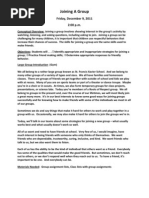Jacques Derrida Glas Pdf Merge
Glas is a 1974 book by Jacques Derrida. X-plane Cirrus Jet Manual. It combines a reading of Hegel's philosophical works and of Jean Genet's autobiographical writing. 'One of Derrida's more inscrutable books,' its form and content invite a reflection on the nature of literary genre and of writing.Abstract This article revisits the textual and political encounter between two of the most important figures of twentieth-century French letters – Jacques Derrida and Jean Genet, focusing on Glas, the former’s 1974 monumental book partially dedicated to the latter. Instead of turning to Derrida's detailed reading of Genet's earlier works, however, I ollow the traces, contained within Glas, of Genet's radical political engagements of the real time of the book’s writing, and specifically his alliance with the Palestinian armed forces in Jordan and Lebanon. Reading these traces together with the material directly facing them in this double-column book – a discussion of the family in Hegel – I follow Derrida on his journey following the “remains” of dialectical motion and their political signification – the Jew in Hegel's Christian-philosophical work and the Palestinian struggle with “Europe” itself – showing how Derrida is already addressing here some of his “later” concerns: the politics of deconstruction, the Jew as “cut,” and the theological underpinning of philosophy.
Post navigation Navigation.
Jacques Derrida is probably the most famous European philosopher alive today. The University of Nebraska Press makes available for the first English translation of his most important work to date, Glas. Its appearance will assist Derrida's readers pro and con in coming to terms with a complex and controversial book. Glas extensively reworks the problems of reading and writing in ph Jacques Derrida is probably the most famous European philosopher alive today. The University of Nebraska Press makes available for the first English translation of his most important work to date, Glas. Its appearance will assist Derrida's readers pro and con in coming to terms with a complex and controversial book. Glas extensively reworks the problems of reading and writing in philosophy and literature; questions the possibility of linear reading and its consequent notions of theme, author, narrative, and discursive demonstration; and ingeniously disrupts the positions of reader and writer in the text.
Glas is extraordinary in many ways, most obviously in its typography. Arranged in two columns, with inserted sections within these, the book simultaneously discusses Hegel’s philosophy and Jean Genet’s fiction, and shows how two such seemingly distinct kinds of criticism can reflect and influence one another. The customary segregation of philosophy, rhetoric, psychoanalysis, linguistics, history, and poetics is systematically subverted. In design and content, the books calls into question “types” of literature (history, philosophy, literary criticism), the ownership of ideas and styles, the glorification of literary heroes, and the limits of literary representation. Jacques Derrida was the founder of “deconstruction,” a way of criticizing not only both literary and philosophical texts but also political institutions. Although Derrida at times expressed regret concerning the fate of the word “deconstruction,” its popularity indicates the wide-ranging influence of his thought, in philosophy, in literary criticism and theory, in art and, in particular, architect Jacques Derrida was the founder of “deconstruction,” a way of criticizing not only both literary and philosophical texts but also political institutions. Although Derrida at times expressed regret concerning the fate of the word “deconstruction,” its popularity indicates the wide-ranging influence of his thought, in philosophy, in literary criticism and theory, in art and, in particular, architectural theory, and in political theory.
Indeed, Derrida's fame nearly reached the status of a media star, with hundreds of people filling auditoriums to hear him speak, with films and televisions programs devoted to him, with countless books and articles devoted to his thinking. Beside critique, Derridean deconstruction consists in an attempt to re-conceive the difference that divides self-reflection (or self-consciousness). But even more than the re-conception of difference, and perhaps more importantly, deconstruction works towards preventing the worst violence.

Jacques Derrida Books
It attempts to render justice. Indeed, deconstruction is relentless in this pursuit since justice is impossible to achieve.